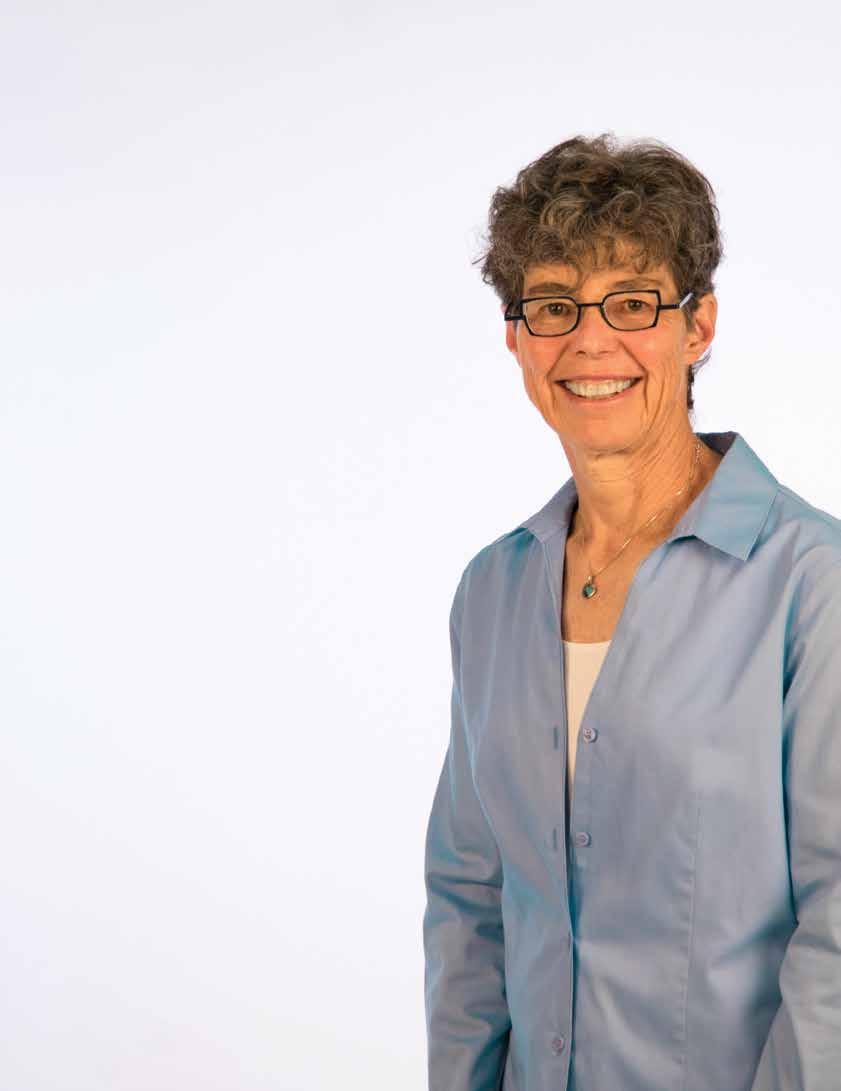
3 minute read
A helper to the youngest among us
DR. WANDA FREMONT A helper to the youngest among us
Jason Klaiber
Looking back on decades of work in psychiatry, predominantly in the branch dedicated to children and adolescents, Dr. Wanda Fremont traces her interest in her specified field back to a longheld fascination in the biopsychosocial model.
Originally a general practitioner, Fremont had patients come in with headaches and pain in places like the neck, belly and lower back, but X-ray examinations would oftentimes reveal that nothing was physically amiss. Such results were followed by sitdowns with the patients to talk about aggravations in their lives and medical workups that indicated their physical complaints were manifesting from psychological stress.
Fremont later directed her focus to what she called a “great need”: helping children in the Syracuse area facing mental health challenges, believing they deserved to be listened to at the crucial stages before adulthood.
After working in direct, multi-disciplinary clinical care for a forerunner to insurance company Excellus during the 1990s, she was recruited in 2001 to become a full-time faculty member at Upstate Medical University, where she had been voluntarily teaching in the department of psychiatry.
At Upstate, she restarted the child psychiatry fellowship program, and she has stayed to become a full professor while taking on administrative duties, contributing to program development and wearing several other hats, such as chief of child psychiatry and vice chair as well as training director and medical director for her discipline’s outpatient clinic. In addition, she has taught family medicine residents at St. Joseph’s Health, and she operated a face-toface private practice that she kept going for 25 years.
As part of her role on the executive steering committee for the New York State virtual program Project TEACH, Fremont collaborates with and provides consultation to primary care clinicians, pediatricians and family practice doctors, with Upstate stepping in as one of seven involved institutions by way of phone line support and weekly Zoom meetings. “We’re trying to put our energy into educating the primary care docs and helping them with the difficult cases of kids they see,” Fremont said.
Started in 2010, that statewide program also has sessions for maternal mental health treatment in order to evaluate the troubles of pregnant and postpartum moms and address how their feelings could affect their infants.
On the side, Fremont also serves as a consultant psychiatrist for Elmcrest Children's Center, a guidance agency for at-risk, developmentally disabled, socially and emotionally disordered, and neglected children with complex trauma. She has lent assistance to its mission for 15 years now, usually on a routine of two half-day visits a week.
According to Fremont, that location on Salt Springs Road by Le Moyne College is opening a Therapeutic Crisis Respite Program (TCRP), which will be an opportunity for “intensive, shorter-term” treatment lasting about four weeks that precedes admittance to an inpatient unit.
Continued on page 18


For the public charity’s initiative—pursued in conjunction with Upstate Medical University, Upstate Golisano Children’s Hospital and Upstate’s department of psychiatry—there is an emphasis on engaging stakeholders “at all levels,” including local government officials and heads of community organizations.
As planned currently, the fundraising campaign will benefit Elmcrest while creating levels of care aside from in-between places to board children and adolescents waiting for room to open up in the psychiatric ward. The money raised will also go toward building up a program to train child nurse practitioners, an eating disorder treatment program, an opioid clinic, and a dual diagnosis program, Fremont said.
Through her career, Fremont has delved into issues of babies’ attachment to their mothers, the treatment of disorders like early bipolar, the subject of disruptive behaviors in grade schools, and, as some make their way through high school, substance abuse.
Though she acknowledges the strides made in telepsychiatry at the height of COVID, Fremont said that the pandemic left not only a medical footprint but also a mental one. For kids, there were the ramifications, especially with regard to basic development, of being kept away from the school environments they were used to for an
Continued on page 18











